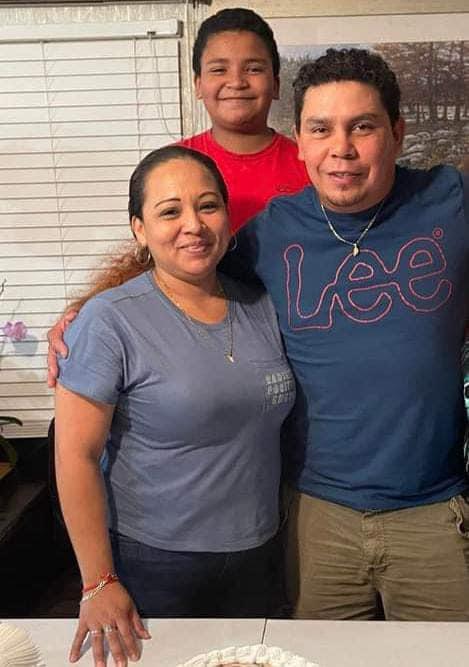In a heartbreaking incident, a family of three was found dead inside their home in Savannah, Georgia, following what is suspected to be a case of carbon monoxide poisoning. According to the Chatham County Coroner’s Office, the deceased have been identified as 41-year-old Arbelio Reyes, his 39-year-old partner Febiola Setina, and their 13-year-old son Oswaldo Reyes.
The tragic event unfolded amid ongoing recovery efforts in Savannah and nearby areas, which have been grappling with widespread power outages due to the devastation caused by Hurricane Helene. Like many other families affected by the storm, the Reyes family resorted to using a portable gas generator in their home on Blossom Drive to cope with the lack of electricity. Unfortunately, it appears that this decision led to their untimely deaths, as authorities believe the generator was placed inside the house, where it emitted toxic carbon monoxide gas.
Carbon monoxide (CO) is an odorless, colorless gas that can be fatal when inhaled in large quantities. It is often referred to as a “silent killer” because it is impossible to detect without the use of special equipment, such as CO detectors. When people breathe in carbon monoxide, it replaces the oxygen in their bloodstream, leading to symptoms like dizziness, nausea, confusion, and eventually unconsciousness. In severe cases, prolonged exposure to high levels of carbon monoxide can result in death within minutes.
In this tragic case, the Reyes family is believed to have succumbed to the gas while sleeping. Authorities were called to the home on Tuesday after a concerned neighbor noticed that they had not been seen for some time. Upon arrival, first responders found all three family members unresponsive, and they were later pronounced dead at the scene.
The use of portable generators has become more common during climate emergencies, particularly in the aftermath of storms like Hurricane Helene, which left thousands of people without power. However, generators pose a significant risk if not used properly, as they emit carbon monoxide as a byproduct of burning fuel. This gas can quickly accumulate in enclosed spaces, leading to dangerous, and often fatal, levels of exposure.
According to the Consumer Product Safety Commission (CPSC), an estimated 85 people die each year in the United States from carbon monoxide poisoning related to the use of portable generators. Most of these deaths occur when generators are used inside homes, garages, or other enclosed areas without proper ventilation. In the case of the Reyes family, it is believed that the generator was running inside the house, a fatal mistake that authorities have repeatedly warned against.
Following this tragedy, local authorities in Savannah have once again stressed the importance of generator safety. “We cannot emphasize enough the need for proper ventilation when using gas-powered generators,” said a spokesperson for the Chatham County Emergency Management Agency. “Generators should always be operated outside, at least 20 feet away from doors, windows, and vents, to prevent carbon monoxide from entering your home.”
In addition to proper placement, officials recommend the use of carbon monoxide detectors, which can alert individuals to dangerous levels of the gas before it becomes life-threatening. These devices are relatively inexpensive and can be life-saving in situations where generators or other fuel-burning appliances are being used.
The deaths of Arbelio Reyes, Febiola Setina, and Oswaldo Reyes serve as a tragic reminder of the risks associated with using generators improperly, especially during times of crisis. While Hurricane Helene has caused widespread damage and left many without power, officials continue to urge caution and emphasize that no temporary solution is worth the risk of carbon monoxide poisoning.
As recovery efforts in Savannah and the surrounding areas continue, the community mourns the loss of this family, and their story serves as a stark warning to others who may be facing similar circumstances. In the wake of such a devastating event, it is hoped that more people will take the necessary precautions to ensure that they, too, do not become victims of this silent and deadly threat.
In the aftermath of this incident, local authorities have begun investigating whether the Reyes family had been adequately informed about the dangers of carbon monoxide poisoning and generator safety, as well as whether their home was equipped with any form of CO detection system. The investigation is ongoing, but officials are using this moment to raise awareness and prevent future tragedies.
